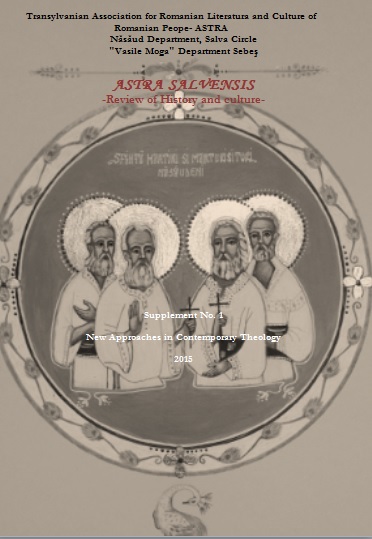
Die Ethik des Seins oder Was für ein Mensch sollte zum Objekt der Ethik, Philosophie und der Theologie werden?
This is a research about ethics and philosophy, that valorifies the ideas of Saint Thomas d'Aquino.
More...We kindly inform you that, as long as the subject affiliation of our 300.000+ articles is in progress, you might get unsufficient or no results on your third level or second level search. In this case, please broaden your search criteria.

This is a research about ethics and philosophy, that valorifies the ideas of Saint Thomas d'Aquino.
More...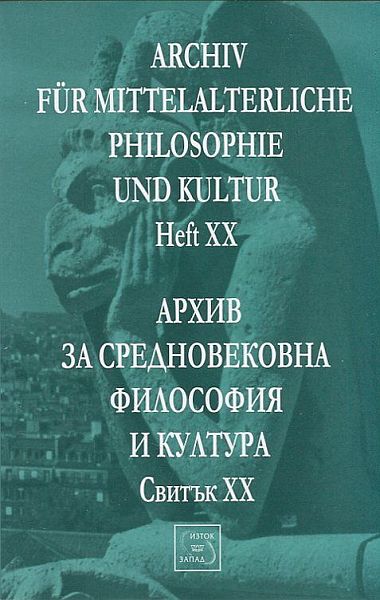
The text will try to show that the concept of “possibility” by John Duns Scotus plays a major role in the new way in which metaphysics begins to be considered, namely its transformation from ontotheology to ontology. Scotus is focusing his argument of God’s existence on the cross point between logic, ontology and the limits of natural reason. The stress that the Doctor Subtilis puts on the boundary of natural human intellect becomes later a major philosophical problem, reconsidered by the Scotistic metaphysical tradition and later by the critical theory of Immanuel Kant. We aim to demonstrate, that the epistemological teaching of Scotus should not be reduced simply to logics, because it has “ontological implications”, that are allowing him to make metaphysical conclusions with the help of arguments, based only on natural reasoning. We examine the usage of the concepts possibility and necessity, the logical law of Scotus and his argument on existence of God and show, that the ontological implications within the logical argumentation of the Scottish master allow him to make metaphysical conclusions, which results into the shift between ontotheology to ontology, where the first known by the intellect is maintained to be the univocal concept of being qua being, that is marking the positive boundary of human natural intellect, where logic and ontology coincide and build the ground for metaphysics, understood as scientia transcendens.
More...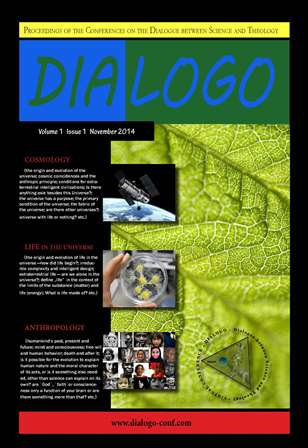
The famous Galilean question was to become the paradigm of the conflict between Nature and Scripture, science and faith, free research of natural reason and authority of the ecclesiastical institution, obscurantism of the medieval period and scientific progress which would illuminate the modern age. It is well known that the stereotype of the pure conflict between scientific thought and religious dogma for long dominated the interpretation of the most profound essence of the Middle Ages, as an obscurantist age in the grip of the universalist political and religious authorities. This image of the Middle Ages was greatly corroborated by the Humanist writers of the Renaissance and Enlightenment historiography. This contribution purports to analyse late–medieval science from a holistic methodology based on history of science and philosophy of science, to obtain a big picture in front to Scientific Revolution and to show the cultural roots of the different images of the universe.
More...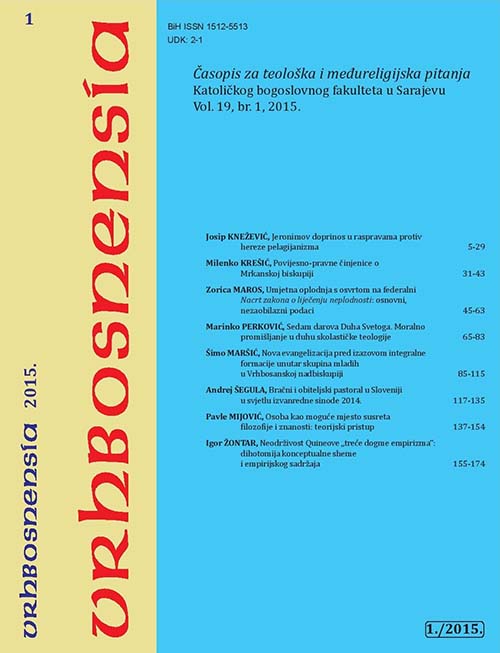
Despite an insufficiently developed pneumatological dimension in moral theology, in the first part of this article the author points to the active presence of the Holy Spirit in the life of Christians. (e notes that anonymity and namelessness are defining characteristics of the Third Person of the Trinity. Therefore, the very activity of the Spirit is hidden, which means it is difficult to show it in a systematic way. As the Spirit works in the soul and through seven gifts that empower and strengthen Christians in the way of holiness, the second part of the article describes each gift individually. After this the author offers some insights and conclusions in the final part: the gifts of the Holy Spirit are not noticeable in the lives of many baptized Christians because these people may not be open to such a course of action of the Spirit. )n addition, many believers do not know or have forgotten that these gifts really exist. Therefore, at the end of the article the author encourages devout Christians to remind their fellow believers that in their inner being there is the hidden treasure of the Holy Spirit and that this needs to be brought to the surface so that it can enrich them and others. If they succeed, they will become inwardly freer, more faithful to Christ, more responsible and more morally mature.
More...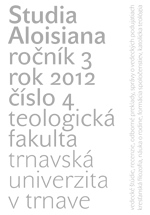
The paper enounces a renewed interest in Thomas’s theory of natural law in the context of contemporary moral-philosophical scene. It presents several reasons of this turn as well as reasons of its only a partial success. Further, it pursues how the Thomas’s natural law theory can sustain the platform of universality in ethical values, at the same time respecting the historicity and the diversity of subjects and cultures. It shows the neglected difference between the permanent universal and variable derived precepts. Universal principles guarantee the possibility of the agreement in the most universal values. Derived precepts, referring the principles to the unrepeatable circumstances and allowing the graduality of man’s progression in moral life, guarantee the possibility of difference. Finally, the paper concludes that the Thomas’s natural law conception offers the vision of how people as rational beings can arrive to mutual comprehension concerning the most important aspects of the good and the evil, sustaining the cultural differences in which they differ.
More...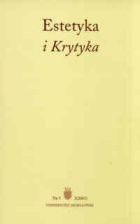
W artykule skoncentrowano się na dyskursach o muzyce, które są obecne w Wyznaniach Augustyna – dziele wyróżniającym się na tle innych tekstów autora ze względu na swój niejednorodny (autobiograficzny, filozoficzny, teologiczny) charakter. Celem artykułu jest zbadanie relacji, którą można określić jako niedokonany projekt racjonalizacji myślenia o muzyce. Po pierwsze, w tekście widoczny jest wpływ greckiego sposobu myślenia, zgodnie z którym sztuka ta stanowi odbicie matematycznego porządku wszech-świata, będąc całkowicie podporządkowana rozumowej harmonii, a także ethosowi, regulującemu jej funkcjonowanie w społeczeństwie. Pod tym względem Wyznania można porównać do dzieł filozoficznych Augustyna, w których ta koncepcja dominuje. Augustyn, jako chrześcijanin, włącza do swojej myśli także hebrajskie dziedzictwo pojmowania muzyki, na czele z Księgą Psalmów. Autor artykułu stara się wydobyć ten drugi dyskurs jako mniej znany rys myśli Augustyna i pokazać, jak kwestionuje on i dekonstruuje zamiar racjonalizacji muzyki.
More...
Ovi tekstovi su predviđeni kao zapisi, zapamćenja i ulomci koji su predavani još 1979./80. godine, kao i tekstovi prisjećanja i elemenata koje sam zapamtio predajući niz godina filozofiju u srednjim školama te na sveučilištu Hercegovina (Fakultetu društvenih znanosti). Naravno, nije riječ o povijesti filozofije, već o tekstovima koji su zapisani, zacrtani u mnogim udžbenicima i hrestomatijama, pa je tako ovaj tekst – čitateljski, koji može poslužiti u pojedinim slučajevima kao podsjećanje na izvođenje nekih nastavnih jedinica.
More...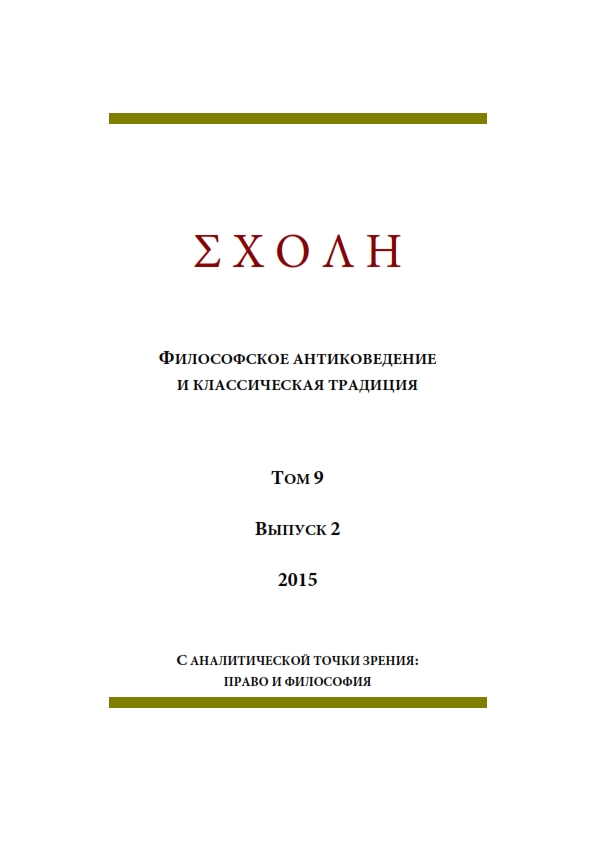
The author supposes that the Tetragrammaton’s interpretation, attested in Ex. 3:14, exerted direct influence on the formation of the conception of single, eternal, and infinite God’s substantia, reflected in Augustine’s “Confessions”, book vii and in Spinoza’s teaching.
More...
The Greek word ‘schesis’ in the works of Gregory Nazianzen has generally been translated as ‘relation’ and interpreted as a programmatic term for his doctrine of Trinitarian relations. Although this may be a valid interpretation of the terminology of other 4th century theologians, this is not true of Gregory. His usage of the word ‘schesis’ does not correspond with the traditional Aristotelian or Stoic ways of designating a relation. It denotes a status or a disposition, it may even mean a place in a relation, but it is not the relation itself, and not a disposition towards another. Therefore all the interpretations of Gregory’s teaching on the Trinitarian relations are to be revisited and reformulated more carefully, keeping in mind the peculiarity of his usage of ‘schesis.’
More...
Observing the history of reception of Origen’s intellectual heritage by Russian theologians and philosophers of the past few centuries, some key moments and figures are discernible. Those figures are Grigory Skovoroda (1722–1794), Vladimir Solovyov (1853– 1900), Sergei Bulgakov (1871–1944), Nicolay Berdyaev (1874–1948) and George Florovsky (1893–1979). Surely, the history of Origen’s reception in Russia cannot be reduced to them alone: translations were made of Origen’s works and special investigations were conducted into some aspects of his theology. But those authors’ significance for our outline is determined by (1) their key role in the evolution of Russian theological and philosophical thought and – at the same time – (2) by the fact that those authors’ own intellectual evolution and/or (3) their ideas’ reception by their contemporaries proceeded in close connection with the problem of Origen. So the process of reception of Origen’s intellectual heritage in Russia was substantially conditioned by the controversies raging around the key representatives of the so-called “Russian religious philosophy.”
More...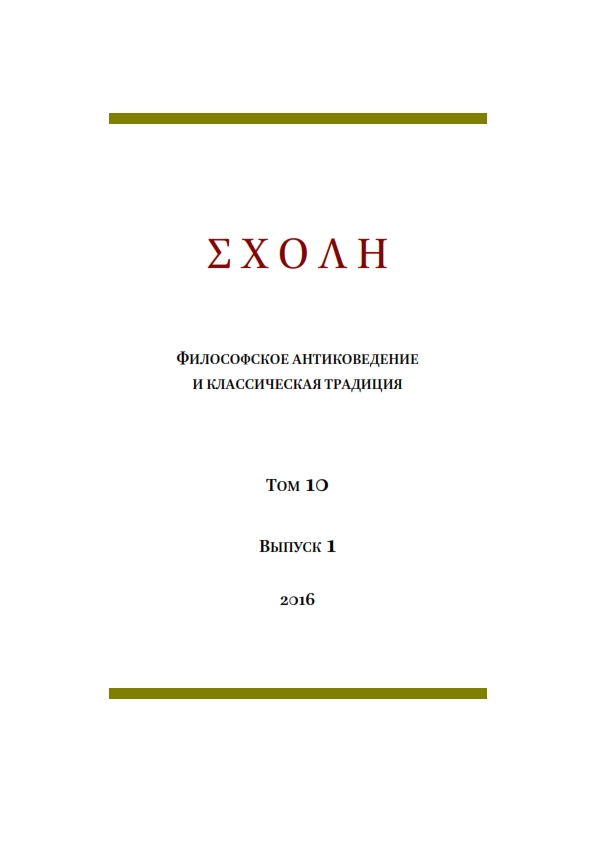
The article treats a medieval text Vita Donati grammatici (The Life of Donatus), containing biographical information concerning [Aelius] Donatus, a Roman grammarian of Late Antiquity. The history of the scholarship of this text, as well as its contents, possible reasons of creation, its genre, and some eccentric and parodic features are under consideration. The study is accompanied by an English and a Russian translations of the Latin original text.
More...
Galen’s last work, De propriis placitis (On my own opinions) has a very complex textual history. Except to few extracts, the Greek original of the treatise is lost. The last two chapters of the treatise, entitled On the substance of natural faculties, circulated independently in a fourteenth century translation into Latin by Niccolò da Reggio. The main body of treatise is preserved in a medieval Latin translation made from an Arabic translation (as numerous words, transliterated from the Arabic, testify). There is also a quote in Hebrew. Fortunately, some time ago V. Nutton (1999) published an excellent commented edition of the treatise. It has proven indispensable for the present study, as well as a recent publication of a newly discovered Greek text by Boudon-Millot and Pietrobelli (2005). The treatise, important for understanding of Galen’s various opinions, certainly deserves a close study. It is now translated into the Russian for the first time.
More...
As early as the thirteenth century, St. Thomas Aquinas clearly recognized certain epistemological threats to the political sphere of human functioning, with his insights gaining a special dimension today. This is because the crisis of rationality we are experiencing in our societies has its origins in a false perception of reality (idealistic constructivism), in the „messianic” tendencies of contemporary politics (ideologization of political and social life) and, finally, in a kind of „sexualization” of public debate (accelerating since the 1968 revolution). All these dangers cause disorders in the cognitive sphere of man, especially as to communal life, and do not allow for the proper functioning of human society. The solution would be to turn to a realistic political epistemology, which was consciously Aquinas’ choice centuries ago, and which would allow us to really see the real problems plaguing modern societies and really overcome them.
More...
This paper aims to demonstrate the differences in the interpretation of the relationship between the concepts of matter and spirit in the works of St. Gregory of Nyssa and Pierre de Chardin. The author analyzes this problem from the point of view of Gregory's and Chardin's vision of the end of the universe, which is only apparently identical and it implies the union of everything that exists with God. What unites Grigory and Chardin is not only the fact that they base their philosophical (in Chardin's case scientific) explanations on their religious beliefs but also an attempt to overcome the dualism between matter and spirit. The author believes that the way in which they try to overcome this dualism is crucial in differentiating their conceptions of the end of the universe.
More...

Thomas Aquinas sets out in his famous Summa Theologiae to identify helpful ways of speaking of the Incarnation, by which one ascribes both divine properties and human properties to one person, Jesus of Nazareth. In doing so he makes extensive use of the eastern Christian teaching of John of Damascus, whose work The Orthodox Faith was translated into Latin. How do these two influential Christian thinkers make clear what they believe about God and human nature as each are manifest in the Incarnation, and why do they think it matters concretely that God became human?
More...
The current text discusses the views of Thomas Aquinas and Maimonides on the positive attributes concerning God in the light of Aquinas’ explicit criticism against the via negativa in Summa Theologiae. In order to do this, first, we discuss some Aquinas own views concerning positive attribution about God. Famously the Dominican author calls for a knowledge of the substance of God based on analogy between the Creator and the creation. Aquinas holds that God can be known as the first principle of all being and thus names attribute something about God. Secondly, we will mention the objections against Maimonides and how the negative theology to is its extreme, rules out any knowledge about God. Lastly, we will take a look at Maimonides’ own views. Seemingly, Thomas misunderstands Maimonides’ position. Even though positive attribution is impossible about the substance of God itself, nevertheless, positive attributes refer to God’s actions towards creation. However, since God is completely transcendent, knowledge about his substance is strictly speaking impossible.
More...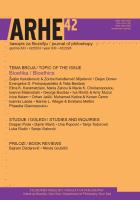
This study is dedicated to examining the motif of light in the thought of Pseudo-Dionysius the Areopagite and St. Augustine. In both cases, the motif of light is tied to the fundamental Christian problem of the ineffability of God; the two thinkers offer two very different responses to this problem. In line with his apophatic theology, Areopagite opts for an extremely unusual solution embodied in the formulation of the divine darkness, as a double negation of earthly light. In contrast, St. Augustine argues for the possibility of gradual enlightenment of the soul through knowledge leading up to discernment, but not the vision of the divine inaccessible light.
More...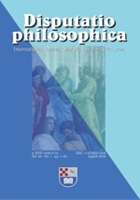
Review of: Jonathan Fuqua, Robert C. Koons (eds.), Classical Theism: New Essays on the Metaphysics of God. London: Routledge, 2023, X + 344 pp.
More...
The deals with a quote from the Corpus Hermeticum (Hermet. XXIX) in one of the treatises (Qu. 68) by the Byzantine philosopher of the 11th century John Italos. On the one hand, this quotation is a scholia to the treatise – its author could be either John Italos himself, or his disciple or follower already in the 12th century – in the manuscript tradition “fused” with the main text. On the other hand, this scholia plays an important role, illustrating and developing the main idea of the treatise – at each level of being, the cause of this category of being is reproduced in a variety of what it is the cause of. Qu. 68 carries out this idea in relation to all levels of being, with the exception of the individual psychological level: it is this lacuna that is filled by a quote from the Corpus Hermeticum, where pagan gods act as metaphorical images for parts of a single human soul. A probable source of such teaching for John Italos and, possibly, for a later tradition is Michael Psellus, who in the treatise De omnifaria doctrina (O.D. 39-40), based on the commentary of pseudo-Simplicius “On the Soul” by Aristotle, speaks about the fundamental unity of all parts and properties of the soul.
More...